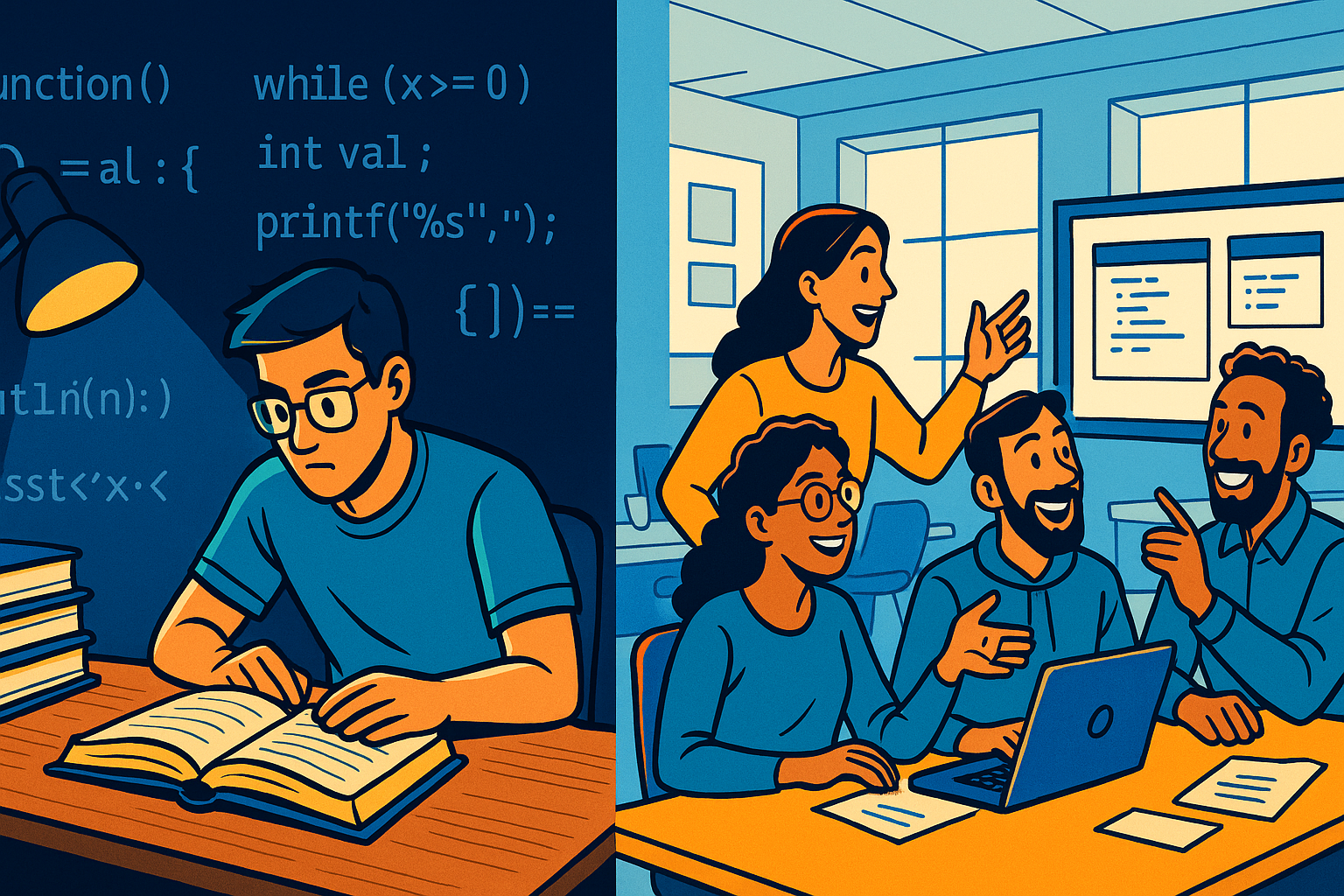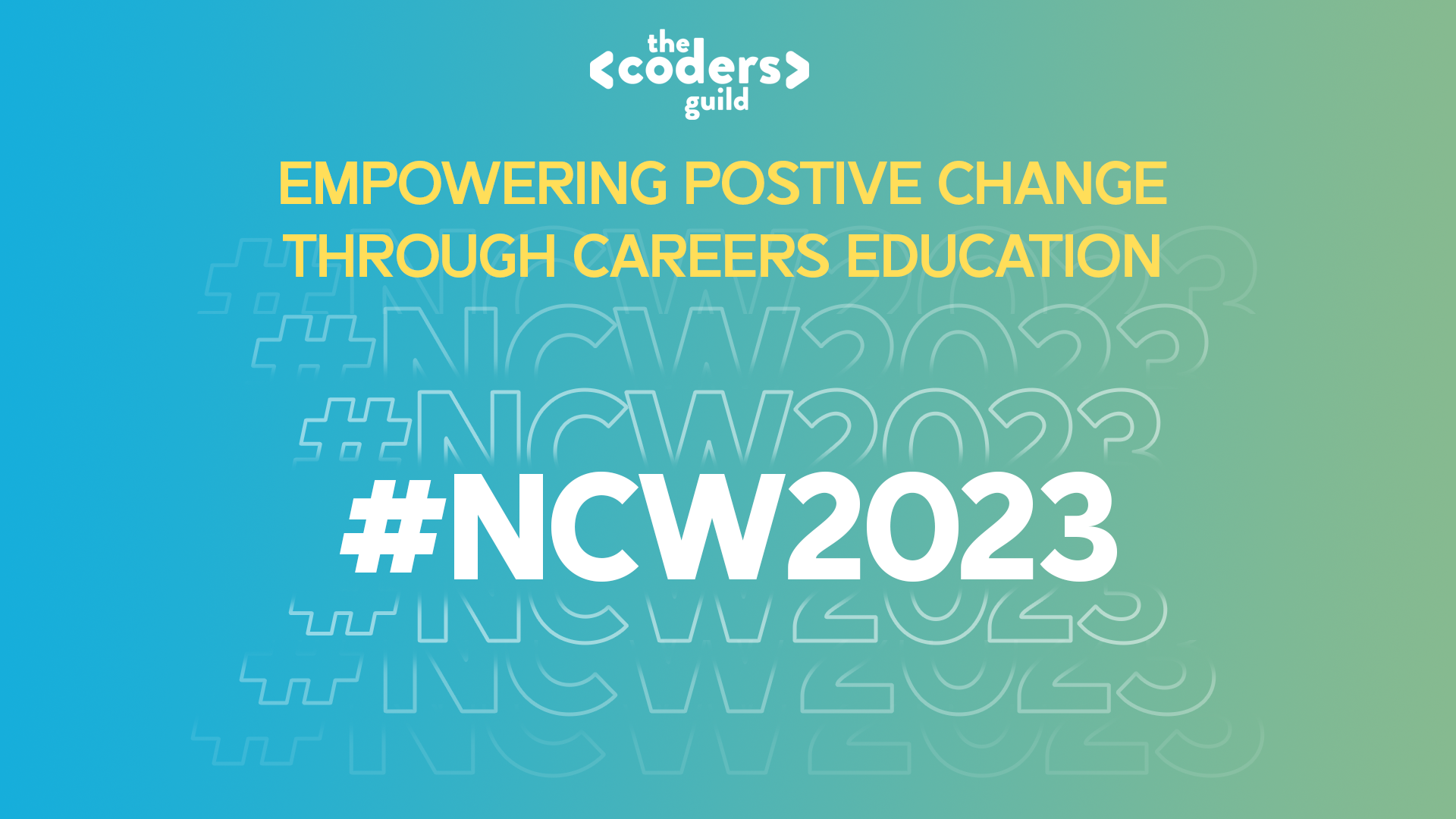
If You're Thinking of a Computer Science Degree Read This First

4 mins read
By Crispin Read - 15th Oct 2025
I met someone at the Leeds Digital Careers Fair last month who'd just finished their computer science degree. Three years, tens of thousands of pounds, and they were struggling to find work.
They were trying everything. Applying to firms, freelance platforms, building a portfolio. But nothing was landing. They were even being turned down for gigs on Fiverr because of the competition.
The advice I ended up giving them was the same I'd give someone fresh out of GCSEs: build your own projects, find companies you want to work for, approach them directly. The degree wasn't helping the conversation.
The Entry Level Jobs Disappeared
Until quite recently, there was a clear path. Computer science degree from a decent uni, graduate scheme at a bigger firm, fast-track into management. That route existed.
It doesn't anymore.
The last 12 to 18 months have been brutal for entry-level roles. Tech layoffs have put experienced developers back on the market. Mergers and acquisitions have consolidated teams. The graduate schemes that used to hoover up CS students have either shrunk or disappeared entirely.
What's left is a flooded market where someone with two years of actual development experience is competing for the same roles that graduates used to walk into. And if you're an SME looking to hire, there's no contest.
SMEs Want Practice Not Theory
When employers come to us, they're not asking for someone who can explain algorithms. They're asking for someone who can be billable quickly.
How is this person going to fit into our team? How quickly can they contribute? What's our return on investment?
Those questions get answered by practical experience. Version control, code reviews, working in a team, refactoring under pressure. The sorts of things you get from a year-long apprenticeship, not a three-year degree.
I've had candidates complete a computer science degree and then do a Level 4 software developer apprenticeship with us to get the practical skills. That's four or five years total before they're actually job-ready.
Someone who does an apprenticeship from the start? They're billable within a year. There's absolutely no contest.
The Mismatch Nobody Talks About
Here's the thing: computer science degrees aren't pretending to be vocational. They're teaching a science. History, theory, academic rigour.
But students and parents assume it's a professional qualification. They assume it's a ticket into software development.
It's not.
You wouldn't expect a psychology degree to qualify you as a counsellor. You wouldn't expect a history degree to make you a museum curator. But somehow we've collectively decided that a computer science degree prepares you for commercial software development.
The gap exists because software development moves fast and universities can't keep up. They were never designed to. They're teaching fundamentals that might be relevant in research or academia, but have almost nothing to do with building products in an SME.
The myth persists because we celebrate a certain kind of academic achievement and direct kids toward it early. The ones who are good at maths go one way, the ones good at humanities go another. But the ability to do quadratic equations at 14 has no relevance to how good a programmer you'll be at 24.
The Shift Is Already Happening
What needs to break is the last bit of perception that apprenticeships are somehow lower than degrees. That they're not for clever people.
I've watched that shift happen over the past decade. Parents are coming round to it. More importantly, the people making hiring decisions now include those who came up through apprenticeships themselves.
They've been mentors, managers, they've seen the return on investment firsthand. They know that 93% of apprentices sustain employment after completion, compared to 87.7% of graduates.
Apprenticeships aren't the alternative route anymore. They're becoming the standard.
Think About What You Actually Want
If you're thinking about a computer science degree, ask yourself: where do you want to be in five years?
If you want to build applications and products, you probably shouldn't do computer science. If you want to go into robotics or deep machine learning, something that needs serious academic study, then yes, a degree makes sense.
But if you want to get out and earn money building software? An apprenticeship will get you there faster, cheaper, and with better employment outcomes.
The person I met at the careers fair had invested three years and come out struggling to find work. A computer science degree becomes a liability the moment you think it's your ticket into practical software development.
It's not. And the sooner we stop pretending otherwise, the better.




